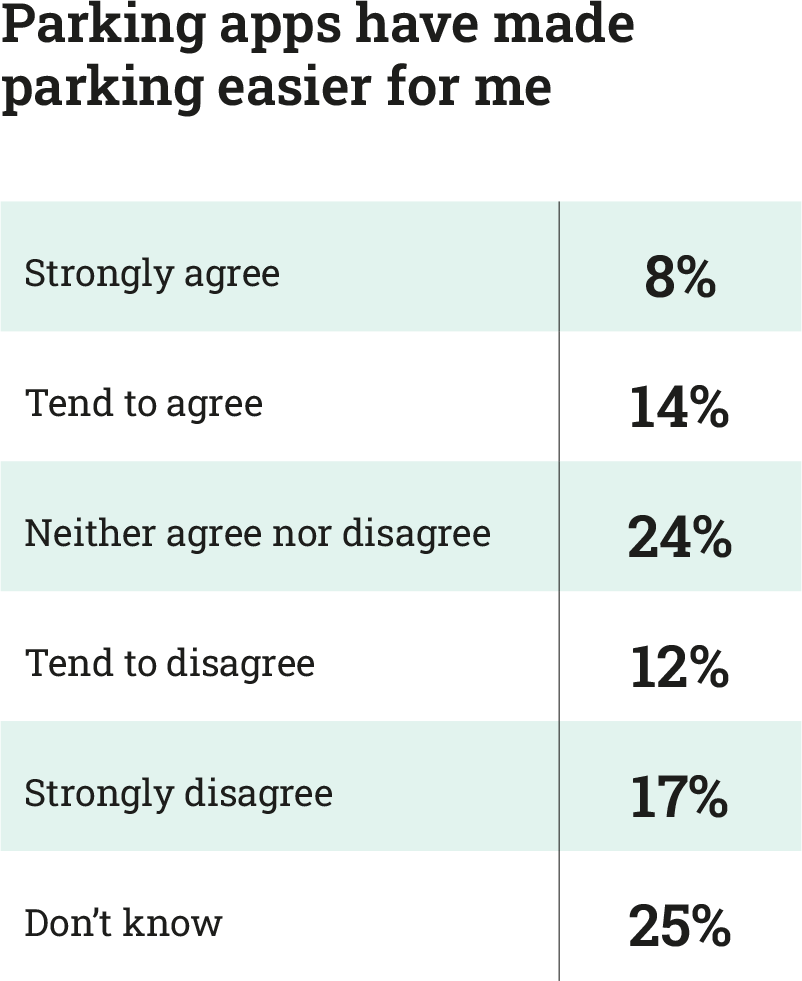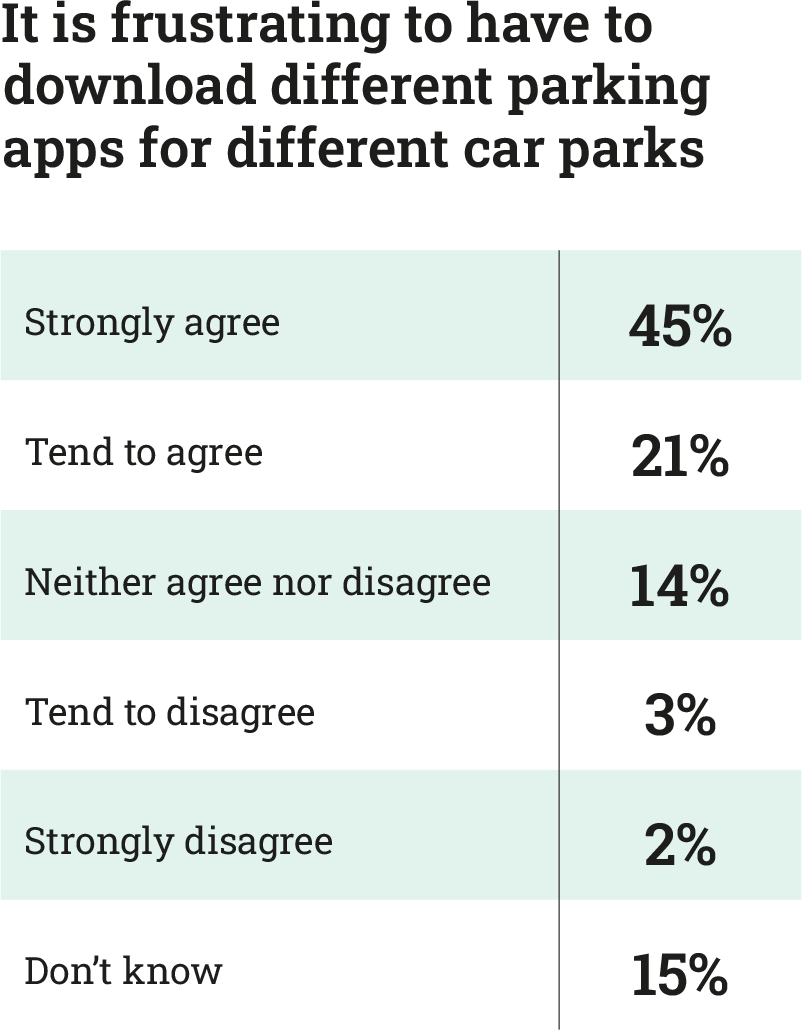Do people like parking apps – yes and no?
Parking apps have often been presented as the solution to parking, putting complete control in the hands of the user, whilst giving parking operators detailed data.
And indeed, they work very well … for some people. We agree that parking is much easier thanks to apps.
But the problem comes when they are forced on people before they are ready.

In our recent survey of 2,000 people in the UK, 22% of respondents said parking apps had made their lives easier, whilst 28% said they had not.
Many may find this surprising. But it’s important to look outside of our bubbles and appreciate that some people don’t have smartphones or struggle with apps. Others don’t want to hand over their personal data. This seems particularly true amongst older users, our survey found that retirees disliked parking apps (39%) at a much higher rate than the general population. In April 2022 this issue hit national headlines when a group of elderly residents in Kent branded their council ageist for only offering app payment options.
Even amongst app-lovers, many (66% of all respondents) said they found it frustrating to have to download multiple apps for different car parks.
All this underlines the importance of a multi-option strategy to ensure everyone is included.
This will include terminal payments with cash, card and phone options. 56% of our respondents said they expect to still pay for parking via a physical terminal some of time, rising to 63% for retirees. Separately, a 2021 study by the British Parking Association found 75% of parking payments still use cash.
But there are other options to explore too. For example a QR code in a parking space could take users straight to a payment portal where they can pay for their parking with just their numberplate and card details, but no sign up, download, or personal data sharing needed for an app. In our survey 55% said they liked the sound of this option.
Parking operators should offer apps – many love them. But they must evolve their infrastructure, not upend it. They should add new options, monitor uptake (a platform to coordinate data from all payment options will be useful), then only remove old options if and when they become redundant.


Read our full report: Parking and EV charging that works for everyone
About the research
Our total cohort for this research was 2,085 respondents of whom 67% were petrol or diesel drivers, 2% electric, 4% hybrid, and 25% non-drivers. Then remaining ~2% were split between rarer options including hydrogen and biofuels.
